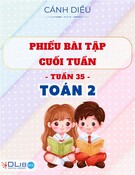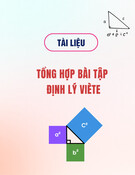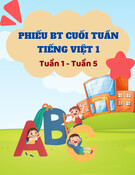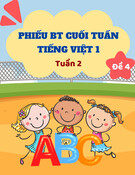
THCS DƯƠNG NỘI
ĐỀ CƯƠNG ÔN TẬP TIẾNG ANH 9 GIỮA KỲ II
NĂM HỌC 2022-2023
UNIT 7- RECIPES AND EATING HABITS
I . NEW WORDS, STRUCTURES AND GRAMMAR
chop (v) /tʃɒp/ : chặt
cube (n) /kjuːb/ : miếng hình lập phương
deep-fry (v) /diːp-fraɪ/ : rán ngập mỡ
dip (v) /dɪp/ : nhúng
drain (v) /dreɪn/ : làm ráo nước
garnish (v) /ˈɡɑːrnɪʃ/ : trang trí (món ăn)
grate (v) /ɡreɪt/ : nạo
grill (v) /ɡrɪl/ : nướng
marinate (v) /ˈmærɪneɪt/ : ướp
peel (v) /piːl/ : gọt vỏ, bóc vỏ
purée (v) /ˈpjʊəreɪ/ : xay nhuyễn
roast (v) /rəʊst/ : quay
shallot (n) /ʃəˈlɒt/ : hành khô
simmer (v) /ˈsɪmə(r)/ : om
spread (v) /spred/ : phết
sprinkle (v) /ˈsprɪŋkl/ : rắc
slice (v) /slaɪs/ : cắt lát
staple (n) /ˈsteɪpl/ : lương thực chính
starter (n) /ˈstɑːtə(r)/ : món khai vị
steam (v) /stiːm/ : hấp
stew (v) /stjuː/ : hầm
stir-fry (v) /stɜː(r)-fraɪ/ : xào
tender (adj) /ˈtendə(r)/ : mềm
versatile (adj) /ˈvɜːsətaɪl/ : đa dụng
whisk (v) /wɪsk/ : đánh (trứng…)
I. Grammar
1. Quantifiers: review: a / an / some /any
2. Modal verbs in conditional sentences type 1: can / must / may / might /should
A. QUANTIFIERS( TỪ CHỈ ĐỊNH LƯỢNG)
”A” và “an” được dùng cho danh từ số ít đếm được .
-“A” đứng trước phụ âm : a cat, a dog, a table
-“an” đứng trước nguyên âm ( nguyên âm là những chữ cái bằng đầu từ u, e, o,a,i (đọc là uể
oải): An ocean, An orange bike, An hour (“h” ở đây là âm câm nên hour được bắt đầu bằng
nguyên âm.), an university student (“University”, trong đó U ở đâylà phụ âm được phát âm)
1. Some
– Dùng trong câu khẳng định
Some + countable noun (số nhiều) + V(số nhiều) Some pens are on thetable.
There are some pens on the table.
1

Some + uncountable noun + V(số ít) There is some ink in theinkpot.
2. Many/ much
-Dùng trong câu phủ định và câu nghi vấn. “Much” thường không được dùng trong câu
khẳng định. “Many” có thể dùng được trong câu khẳng định nhưng “a lot of” thường được
dùng nhiều hơn trong câu đàmthoại.
-Many + countable noun (số nhiều) + V(số nhiều) There are many books on thetable.
There are not many boys here.
Are there many teachers in your school?
-Much + uncountable noun + V(số ít) There isn’t much fresh water on earth. There is much
milk in thebottle.
We didn't spend much money.
-Nhưng chú ý rằng , chúng ta dùng “too much” và “so many” trong các câu khẳng định: We
spent too much money.
3. A lot of/ lots of/ plenty of
–Dùng trong câu khẳng định:
A lot of/ lots of/ plenty of + countable noun (số nhiều) + V(số nhiều)
A lot of pupils/ lots of pupils are in the library now. Plenty of shops take checks.
A lot of/ lots of/ plenty of + noun (không đếm được) + V(số ít)
Lots of sugar is sold in the shop.
A lot of time is needed to learn a language. Don’t rush, there’s plenty of time.
4. A great deal of (= much)/ a number of
A great deal of + uncountable noun + V (số ít) A great deal of rice is produced inVietnam
A large number of + countable noun (số nhiều) + V(số nhiều)
A great number of + countable noun (số nhiều) + V(số nhiều)
A large number of cows are raised in BaVi.
The number of + countable noun (số nhiều) + V (số ít)
The number of days in a week is seven.
The number of residents who have been questioned on this matter is quitesmall.
5. A little và little
A little (không nhiều nhưng đủ dùng) + uncountable noun + V(sốít)
Little (gần như không có gì) + uncountable noun + V(số ít) Vídụ:
A: Can you give me some ink?
B: Yes, I can give you some. I’ve got a little ink in my pen ( No, I’m sorry. I’ve got
onlylittle)
We must be quick. There is little time. (= not much , not enough time )
He spoke little English, so it was difficult to communicate with him
He spoke a little English, so we was able to communicate with him.
6. A few vàfew
A few (không nhiều nhưng đủ dùng) + countable noun (số nhiều) + V(sốnhiều)
Few (gần như không có) + countable noun (số nhiều) + V(số nhiều)
The house isn’t full. There are a few rooms empty . Where can I sit now? - There are few
seats left.
He isn't popular. He has few friends.
She's lucky. She has few problems. (= not many problem)
7. All
All + countable noun (số nhiều) + V(số nhiều) All students are ready for theexam.
All + uncountable noun + V(số ít) Nearly all water on earth issalty.
8. Most of, all of, some of, many of
Most/ some/ all/ many + noun (số nhiều) + V(số nhiều) Some people are veryunfriendly.
Most of, some of, all of, many of + the/ his/ your/ my/ this/ those... + noun (số nhiều) + V(số
nhiều)
Some of the people at the party were very friendly. Most of my friends live in Hanoi.
2

B. Modal verbs in conditional sentences type 1: can / must / may / might /should
Modal verbs in conditional sentences type 1
Động từ khiếm khuyết trong câu điều kiện loại 1
Loại câu điều kiện này diễn tả điều kiện có thể hoặc không thể thực hiện ở trong tương lai. Cấu
trúc của câu điều kiện loại 1:
If - clause (Mệnh đề if) Main clause (Mệnh đề chính)
If + S + V(simple present) S + will/ can/ may/ must + V-bareinfinitive
Thì hiện tại được dùng trong mệnh đề if. Thì tương lai được dùng trong mệnh đề chính.
Ex: If I have the money, I will buy a big house.
I will be late for work if you don’t drive faster.
If you want to pass the exam, you must study harder.
LƯU Ý:
Thì hiện tại đơn có thể được dùng ở mệnh đề chính để diễn tả một điều kiện luôn luôn đúng.
Trong câu điều kiện loại 1, chúng ta sử dụng thì hiện tại đơn trong mệnh đề if và will + nguyên
mẫu không “to” trong mệnh đề chính. Đây là hình thức chuẩn.
Thay vì will, chúng ta có thể sử dụng động từ khuyết thiếu khác như can, must, may, might
hoặc should trong mệnh đề chính để diễn tả năng lực, sự cho phép, lời khuyên, khả năng, sự cần
thiết...
Ex: If you cut your finger, it will bleed, (standard form)
If you finish your dinner, you can watch TV. (permission)
She can learn to become a good cook if she tries hard,(ability)
If he likes eating spicy food, he may/might add chilli, (possibility)
If you don’t want to get burnt, you must follow these safety instructions,(necessity)
If you feel unwell, you shouldn’t eat fast food.(advice)
UNIT 8- TOURISM
A. NEW WORDS, STRUCTURES ANDGRAMMAR
I. Newwords:
affordable (adj) /əˈfɔːdəbl/ có thể chi trả
được, hợp túi
tiền
breathtaking (adj) /ˈbreθteɪkɪŋ/ ấn tượng, hấp
dẫn
air (v) /eə(r)/ phát sóng (đài,
vô tuyến)
check-in (n) /tʃek-ɪn/ việc làm thủ tục
lên máy bay
checkout (n) /ˈtʃekaʊt/ thời điểm rời
khỏi khách sạn
confusion (n) /kənˈfjuːʒn/ sự hoang mang,
bối rối
exotic (adj) /ɪɡˈzɒtɪk/ kì lạ erode away (v) /ɪˈrəʊd əˈweɪ/ mòn đi
explore (v) /ɪkˈsplɔː(r)/ thám hiểm hyphen (n) /ˈhaɪfn/ dấu gạch ngang
imperial (adj) /ɪmˈpɪəriəl/ (thuộc về)
hoàng đế
inaccessible (adj) /ˌɪnækˈsesəbl/ không thể
vào/tiếp cận
được
magnificence (n)/mæɡˈnɪfɪsns/ sự nguy nga,
lộng lẫy, tráng
lệ
not break the bank
(idiom)
/nɒt breɪk ðə
bæŋk/
không tốn nhiều
tiền
3

orchid (n) /ˈɔːkɪd/ hoa lan package tour (n) /ˈpækɪdʒ tʊə(r)/ chuyến du lịch
trọn gói
pile-up (n) /paɪl-ʌp/ vụ tai nạn do
nhiều xe đâm
nhau
promote (v) /prəˈməʊt/ giúp phát triển,
quảng bá
pyramid (n) /ˈpɪrəmɪd/ kim tự tháp safari (n) /səˈfɑːri/ cuộc đi săn,
cuộc hành trình
(bằng đường bộ
nhất là ở đông
và nam phi
stalagmite (n) /stəˈlæɡmaɪt/ măng đá stimulating (adj) /ˈstɪmjuleɪtɪŋ/ thú vị đầy phấn
khích
touchdown (n) /ˈtʌtʃdaʊn/ sự hạ cánh varied (adj) /ˈveərid/ đa dạng
lush (adj) /lʌʃ/ tươi tốt, xum
xuê
speciality (n) /ˌspeʃiˈæləti/ Đặc sản
decide (v)
decision (n)
/dɪˈsaɪd/
/dɪˈsɪʒn/
Quyết định be into sth like it very
much
make a decision Đưa ra quyết
định
tease (v) /tiːz/ Trêu chọc, đùa adventure (n)
adventuous (a)
/ədˈventʃə(r)
/ədˈventʃərəs/
Phiêu lưu, mạo
hiểm
reserve(v)
reservation (n)
/rɪˈzɜːv/
/ˌrezəˈveɪʃn/
Đặt chỗ trước expedition (n) /ˌekspəˈdɪʃn/ Cuộc viễn
chinh, thám
hiểm
excursion (n) /ɪkˈskɜːʃn/ Cuộc đi chơi,
tham quan
jet lag(n) /ˈdʒet læɡ/ Mệt mỏi sau
chuyến bay dài
standstill (n) /ˈstændstɪl/ Sự dừng lại, bế
tắc
terminal (n) /ˈtɜːmɪnl/ Nhà đón khách
drawback (n) /ˈdrɔːbæk/ Hạn chế tailor-made(a) /ˌteɪlə ˈmeɪd/ May đo
widelife (n) /ˈwaɪldlaɪf/ Thú vật, chim
muông ...
hoang dã
bargain (n) /ˈbɑːɡən/ Món hời
II. Grammar: Compoundnouns
Articles: a/ an and the
UNIT 9- E
N
GL
I
S
H
I
N
T
H
E
W
O
R
L
D
4

A. NEW WORDS, STRUCTURES AND GRAMMAR
I. Newwords:
accent(n) /'æksent/ giọng điệu operate(v)
operation(n)
/'ɔpəreit/
/,ɔpə'reiʃn/
đóng vai trò, vận
hành
bilingual(adj)
bilingually(adv)
/bai´liηgwəl/ song ngữ pick up(v)
(alanguage
)
/´pik¸ʌp/ học 1 ngôn ngữ
từ mt xung
quanh
dialect(n)
dialectal(adj)
/'daɪəlekt/
/¸daiə´lektəl/
tiếng địa phương
thuộc về tiếng địa
phương
punctual(adj) /'pʌɳktʃuəl/ đúng giờ
dominance(n)
dominant(adj)
/´dɔminəns/
/´dɔminənt/
sự chiếm ưu thế
chiếm ưu thế
rusty(adj) /´rʌsti/ lỗi thời, giảm do
lâu ngày ko dùng
establish(v)
establishment(n
)
/ɪˈstæblɪʃ/
/is'tæbli∫mənt/
thành lập
việc thành lập simple(adj)
simplicity(n)
/'simpl/
/simp’lisəti/
đơn giản
sự đơn giản
get by in
(language)
/get bai in/ cố gắng sử dụng 1
ngôn ngữ
variety(n) /və'raiəti/ thể loại
global(adj) /´gləubl/ toàn cầu term(n) /tɜ:m/ kì học, thuật ngữ
flexible(adj)
flexibility(n)
/ ‘fleksəbl/
/¸fleksi´biliti/
linh hoạt
sự
linhhoạt
master(v) /'mɑ:stə/ làm chủ
imitate(v)
imitation(n)
/ˈɪmɪˌteɪ/
/¸imi´teiʃən/
bắt chước
sự
bắtchước
release(v,n) /ri'li:s/ phát hành, thoát ra
immersion
school
/i'mə:ʃn
/sku:l/ trường học nơi 1
ngôn ngữ khác
tiếng mẹ đẻ đc sử
dụng hoàn toàn
estimate(v) /'estimit -
'estimeit/
đánh giá, ước
lượng
massive(adj) /'mæsiv/ to lớn multinational(adj)/¸mʌlti´næʃə
nəl/
đa quốc gia
mother
tongue(n)
/’m^ðə tʌη/ tiếng mẹ đẻ derivative(adj) /di'rivətiv/ bắt nguồn, dẫn xuất
runner – up(n) /´rʌnər¸ʌp/ á quân
official(adj) /ə'fiʃəl/ chính thức settle(v)
settlement(n)
/ˈsetl/
/'setlmənt/
định cư, dàn xếp
openness(n) /'əupənəs/ độ mở certificate(n,v) /sə'tifikit/ (cấp)giấy chứng
nhận, bằng
GRAMMAR
1. Conditional type2
If + S1 + V (quá khứ), S2 + would/might/could… + V(infinitive)
E.g: If it didn’t rain now, we would go on a picnic.
2. Relative clauses
Định nghĩa
Mệnh đề quan hệ là mệnh đề phụ được nối với mệnh đề chính bởi các đại từ quan hệ (who,
whom, whose, which, that ) hay các trạng từ quan hệ như (where, when, why). Mệnh đề quan
hệ đứng ngay đằng sau danh từ, đại từ trong mệnh đề chính để bổ sung ý nghĩa cho danh từ,
5



![Tài liệu tham khảo Tiếng Anh lớp 8 [mới nhất/hay nhất/chuẩn nhất]](https://cdn.tailieu.vn/images/document/thumbnail/2025/20250806/anhvan.knndl.htc@gmail.com/135x160/54311754535084.jpg)










![Phiếu bài tập cuối tuần Tiếng Việt 1 tuần 2 đề 2: [Hướng dẫn chi tiết]](https://cdn.tailieu.vn/images/document/thumbnail/2025/20250728/thanhha01/135x160/42951755577464.jpg)

